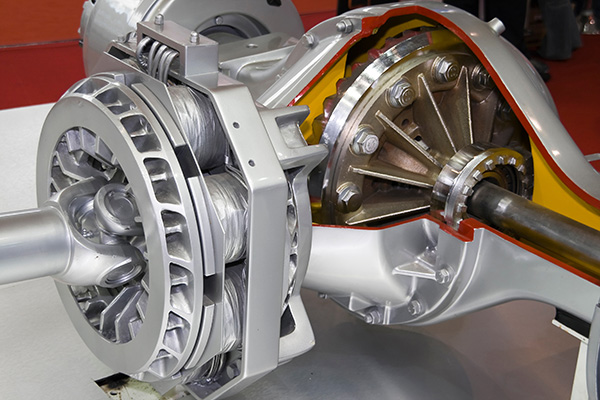
Your car’s differential might not be the first thing you think about when it comes to maintenance, but it's essential for keeping your vehicle operating correctly. If you’ve ever wondered how your car manages to turn corners so effortlessly without tire damage or strain on your drivetrain, the differential is the hero behind the scenes. But like any other part of your car, regular care is required to keep functioning properly. So, how often should you service it, and why is it so important?
What Does a Differential Do
The differential is a critical component of your car’s drivetrain. It’s responsible for distributing power from the engine to the wheels while allowing them to rotate at different speeds. This is especially important during turns, as the inside wheel travels a shorter distance than the outside wheel. Without a differential, your car would experience significant strain, leading to reduced performance and potential damage to other components.
Depending on your vehicle, you might have a front, rear, or all-wheel-drive differential. Each type has its own maintenance needs, but they all require regular checks and servicing to stay in top shape.
Signs Your Differential Might Need Attention
Before we get into how often you should service your differential, let’s look at some warning signs that it might already need attention:
- Unusual Noises: Whining, grinding, or clunking sounds from your vehicle could point to a differential issue.
- Leaking Fluid: If you notice fluid pooling under your car, it could be differential oil.
- Vibrations While Driving: Excessive vibrations, especially during acceleration, might be related to a failing differential.
- Poor Handling: Difficulty steering or a feeling of instability when turning can indicate a problem.
If you notice any of these symptoms, don’t wait for a scheduled service—get your car checked right away.
How Often Should You Service Your Differential
The exact interval for servicing your differential can vary based on the make and model of your vehicle, as well as your driving conditions. However, a good rule of thumb is to have the differential fluid inspected and replaced every 30,000 to 60,000 miles.
More frequent checks may be necessary for vehicles frequently driven in extreme conditions—such as towing heavy loads, off-roading, or in areas with severe weather like Olathe, KS. These activities put extra strain on the drivetrain, increasing wear and tear on the differential.
Always refer to your vehicle’s owner’s manual for specific recommendations, as some manufacturers may have unique guidelines.
Why Is Differential Maintenance Important
Skipping differential maintenance can lead to costly repairs down the road. Over time, the oil in your differential breaks down, losing its ability to lubricate effectively. This can cause metal components to grind against each other, leading to excessive wear and potential failure.
Regular servicing ensures that the oil is clean and at the right level, helping to prevent overheating, corrosion, and damage to the gears and bearings. It also allows your technician to spot early signs of trouble, such as leaks or unusual wear patterns.
What Happens During a Differential Service
When you bring your car in for a differential service, here’s what typically happens:
- Inspection: The technician will examine the differential housing for leaks, cracks, or other signs of damage.
- Fluid Replacement: Old, degraded oil is drained, and fresh fluid is added to ensure optimal lubrication.
- Seal and Gasket Check: The seals and gaskets around the differential are inspected and replaced if necessary to prevent leaks.
- Performance Check: Once serviced, the differential is tested to ensure it’s functioning correctly.
Extending the Life of Your Differential
Want to get the most out of your differential? Here are some tips to keep it in great condition:
- Follow Manufacturer Guidelines: Stick to the recommended service intervals for your vehicle.
- Monitor Fluid Levels: Check for leaks and ensure the differential fluid is always at the proper level.
- Address Issues Early: Don’t ignore unusual sounds or handling problems—they could be signs of a failing differential.
- Drive Smart: Avoid sudden acceleration, hard braking, and aggressive driving, which can strain your drivetrain.
Protect your drivetrain with top-quality differential services from Chicane Motorsport. Reach out today to book an appointment and ensure your vehicle stays in peak condition.